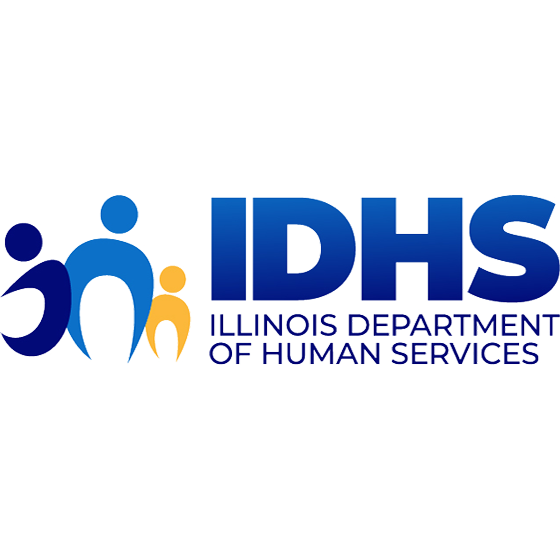Why Comprehensive, Collaborative Care Matters at SunCloud Health
Mental health is rarely one-dimensional—and neither are the individuals who seek support. Many people facing emotional, behavioral, or psychiatric challenges live with more than one diagnosis. When conditions such as trauma, anxiety, depression, eating disorders, addiction, and substance use occur together, they are referred to as co-occurring disorders, or dual diagnoses.
At SunCloud Health, we know that treating these overlapping conditions in isolation often leads to partial progress and frequent setbacks. That’s why our clinical model is built around integrated treatment—a coordinated approach that addresses the full scope of a person’s needs, not just a single symptom or diagnosis.
What Are Co-Occurring Disorders?
Co-occurring disorders refer to the presence of two or more mental health or substance use disorders occurring at the same time. Common combinations include:
- Depression and alcohol use disorder
- Eating disorders and addiction
- Anxiety and eating disorders
- Trauma and opioid dependence
- PTSD and self-harm behaviors
- Borderline personality disorder and disordered eating
These combinations are often the result of complex, overlapping factors—biological vulnerabilities, adverse childhood experiences, environmental stressors, and trauma histories. Left untreated or only partially addressed, one condition can fuel the other, creating a cycle that becomes harder to interrupt over time.
Understanding Co-Occurring Mental Health Disorders: Key Statistics and Overlap Rates
Many people living with mental health challenges experience more than one diagnosis—a reality known as co-occurring or comorbid conditions. Understanding how frequently certain disorders overlap can help inform better care, earlier intervention, and more comprehensive treatment planning. The table below offers a snapshot of key statistics showing the likelihood of co-occurring mental health and substance use disorders across various diagnoses.
| Category / Condition | Comorbidity Rate |
| Any mental disorder (past year) | 27% have >1 disorder lifetime |
| AMI with SUD | ~50% |
| OCD | ~69% have ≥1 additional diagnosis |
| OCD + Bipolar | ~25% of OCD cases |
| BPD | ≥75% have mood disorder; ~74% another personality disorder |
| DID | 5–7 comorbid psychiatric conditions on average |
| Major Depression | 50% have anxiety |
| Anxiety disorders | 16.5% co-occurring SUD |
Why Integrated Treatment Matters
Integrated care is not just a best practice—it’s often a lifeline. Research consistently shows that people with co-occurring disorders have better outcomes when their mental health and substance use conditions are treated simultaneously, by a collaborative team using evidence-based approaches. Benefits of integrated care include:
- Holistic team coordination avoids gaps between systems
- Concurrent intervention prevents one disorder from triggering relapse in the other
- Evidence-based, stage-specific strategies better engage clients
- Reduced fragmentation improves compliance and long-term recovery
At SunCloud Health, we don’t ask patients to separate their trauma from their eating disorder, or their anxiety from their substance use. We ask instead: How are these experiences connected—and how can we help you heal holistically?
Our Integrated Approach at SunCloud Health
We offer fully integrated treatment across all levels of care—including Residential, Partial Hospitalization (PHP), and Intensive Outpatient Programs (IOP).
Key components of our approach include:
- Multidisciplinary Team Collaboration: Our psychiatrists, therapists, dietitians, and medical providers work together to create a unified treatment plan that addresses mental, physical, and emotional needs.
- Evidence-Based Modalities: Treatment may include Cognitive Behavioral Therapy (CBT), Acceptance and Commitment Therapy (ACT), Dialectical Behavior Therapy (DBT), Cognitive Processing Therapy (CPT), trauma-focused interventions, family therapy, and more.
- Individualized Care Plans: We assess the unique interplay between conditions to ensure that all diagnoses are treated with equal importance and tailored strategies.
- Medical and Psychiatric Support: Integrated care includes psychiatric evaluation, medication management, and medical oversight to support physical health and emotional regulation.
- Family Involvement: We involve families in the healing process—offering psychoeducation and skills training to promote lasting change at home.
A Culture of Compassion
At SunCloud, we don’t treat “problems”—we treat people. Our team is trained to approach co-occurring disorders with compassion, clinical rigor, and a deep understanding of human complexity. We don’t believe anyone is “too complicated” or “too treatment-resistant”—just that they haven’t yet received care that fully sees and supports the full picture of their experience.
Is Integrated Treatment Right for You or Your Loved One?
If you or someone you care about has struggled with multiple mental health diagnoses—or has cycled in and out of programs without lasting progress—integrated care could be the missing piece. SunCloud Health is here to offer thoughtful, coordinated support for individuals who deserve comprehensive healing.
Contact us today to learn more about our programs and how we can help.
SunCloud Health provides integrated care for co-occurring mental health conditions at our locations in Northbrook, Naperville, and Chicago, Illinois. Our team specializes in treating adolescents, young adults, and adults living with eating disorders, trauma, mood disorders, substance use, and more.
Intrusive Thoughts: When the Mind Feels Like the Enemy
Most people experience fleeting, strange thoughts on occasion—like imagining shouting something inappropriate during a quiet moment or worrying they forgot to lock the door. For most, these thoughts are easy to dismiss.
But for individuals with Obsessive-Compulsive Disorder (OCD), these thoughts become sticky, persistent, and incredibly distressing. They don’t just pass through the mind—they grip it.
Intrusive thoughts are unwanted mental images, ideas, or impulses that feel foreign, disturbing, or even terrifying. Some common themes include:
- Violent or harmful images
- Unwanted sexual thoughts or urges
- Fear of offending God or committing a sin
- Intense preoccupation with germs, illness, or contamination
- Worry about being “bad,” dishonest, or morally flawed
What makes intrusive thoughts so painful is the internal conflict they create. People with OCD often fear that having a thought means they might act on it—or that it says something dark about who they are. But intrusive thoughts are not indicators of danger, desire, or intent. They are a symptom of a treatable disorder.
Understanding OCD: Obsessions and Compulsions
OCD is a mental health disorder characterized by two main components:
- Obsessions: Unwanted, intrusive thoughts, images, or urges that cause significant anxiety or distress.
- Compulsions: Repetitive behaviors or mental acts performed to reduce anxiety or prevent a feared outcome.
For example, someone who has intrusive thoughts about harming a loved one may compulsively avoid sharp objects or constantly seek reassurance that they’re “not dangerous.” Another person might experience intense anxiety about contamination and wash their hands dozens of times a day—even when they rationally know they are clean.
Compulsions are meant to reduce distress, but over time, they become exhausting and take over daily life. The relief they provide is only temporary, and the obsessive-compulsive cycle continues.
How Intrusive Thoughts Affect Teens and Adults
While OCD can emerge at any age, it often begins during adolescence or early adulthood. For teens, intrusive thoughts can feel especially isolating and shameful—especially when they involve taboo or “scary” themes. Without the right support, teens may try to hide their symptoms or withdraw socially, academically, and emotionally.
Adults with OCD often go undiagnosed for years, particularly if their symptoms don’t match the stereotypical portrayals of compulsive behavior. Many feel ashamed, confused, or fearful of judgment.
At SunCloud Health, we provide a safe, nonjudgmental environment for both adolescents and adults to explore these experiences, understand what they’re facing, and begin the process of healing. We want every patient to know: You are not alone, and you are not your thoughts.
What Treatment at SunCloud Health Looks Like
At SunCloud Health, our approach to treating OCD and intrusive thoughts is comprehensive, trauma-informed, and evidence-based. We offer multiple levels of care depending on the severity of symptoms and the needs of the patient:
Levels of Care:
- Partial Hospitalization Program (PHP):
A structured, full-day program offering intensive clinical support in a safe, therapeutic setting. - Intensive Outpatient Program (IOP):
Available mornings or afternoons, in-person or virtually. This flexible option allows individuals to engage in meaningful therapy while maintaining some school, work, or family responsibilities. - Outpatient Therapy:
Ideal for individuals stepping down from higher levels of care or seeking weekly therapeutic support for long-term management.
Our Clinical Modalities Include:
- Cognitive Behavioral Therapy (CBT):
Helps patients identify distorted thought patterns, challenge fears, and build more helpful coping strategies. - Individual and Group Therapy:
Offers a supportive space to process intrusive thoughts and reduce isolation. - Psychiatric Assessment and Medication Management:
When appropriate, medication can help reduce obsessive thinking and anxiety symptoms. - Family Involvement and Education:
Particularly in adolescent cases, we involve parents and caregivers in the recovery process to build understanding and resilience at home. - Exposure and Response Prevention (ERP):
A highly effective treatment for OCD, ERP is available exclusively within our adolescent programming at SunCloud Health.
Treating the Whole Person: OCD and Co-Occurring Disorders
OCD rarely exists in isolation. Many people who struggle with intrusive thoughts also experience other conditions, such as:
- Generalized anxiety
- Depression
- Trauma and PTSD
- Disordered eating
- Substance use
Our multidisciplinary team is trained to treat complex, co-occurring conditions with sensitivity and expertise. Whether someone is dealing with OCD and trauma, or OCD and an eating disorder, we build a personalized, integrated treatment plan that supports long-term healing.
What Recovery Really Means
Recovery from OCD doesn’t mean never having an intrusive thought again—it means changing your relationship to those thoughts. It means learning how to tolerate discomfort without acting on compulsions, how to reclaim your time and attention, and how to reconnect with what matters most to you.
At SunCloud Health, we help individuals rediscover that freedom. We walk beside them with compassion, clinical excellence, and unwavering respect for their courage.
You Are Not Alone—And You Are Not Broken
If you or someone you care about is experiencing distressing intrusive thoughts or OCD symptoms, we’re here to help. You don’t have to manage this on your own—and you don’t have to live in fear of your mind.
Call SunCloud Health today at (866) 729-1012
Or contact us online to learn more about our treatment programs.
SunCloud Health serves adolescents and adults throughout the Chicagoland area with in-person and virtual care at the PHP, IOP, and outpatient levels.








